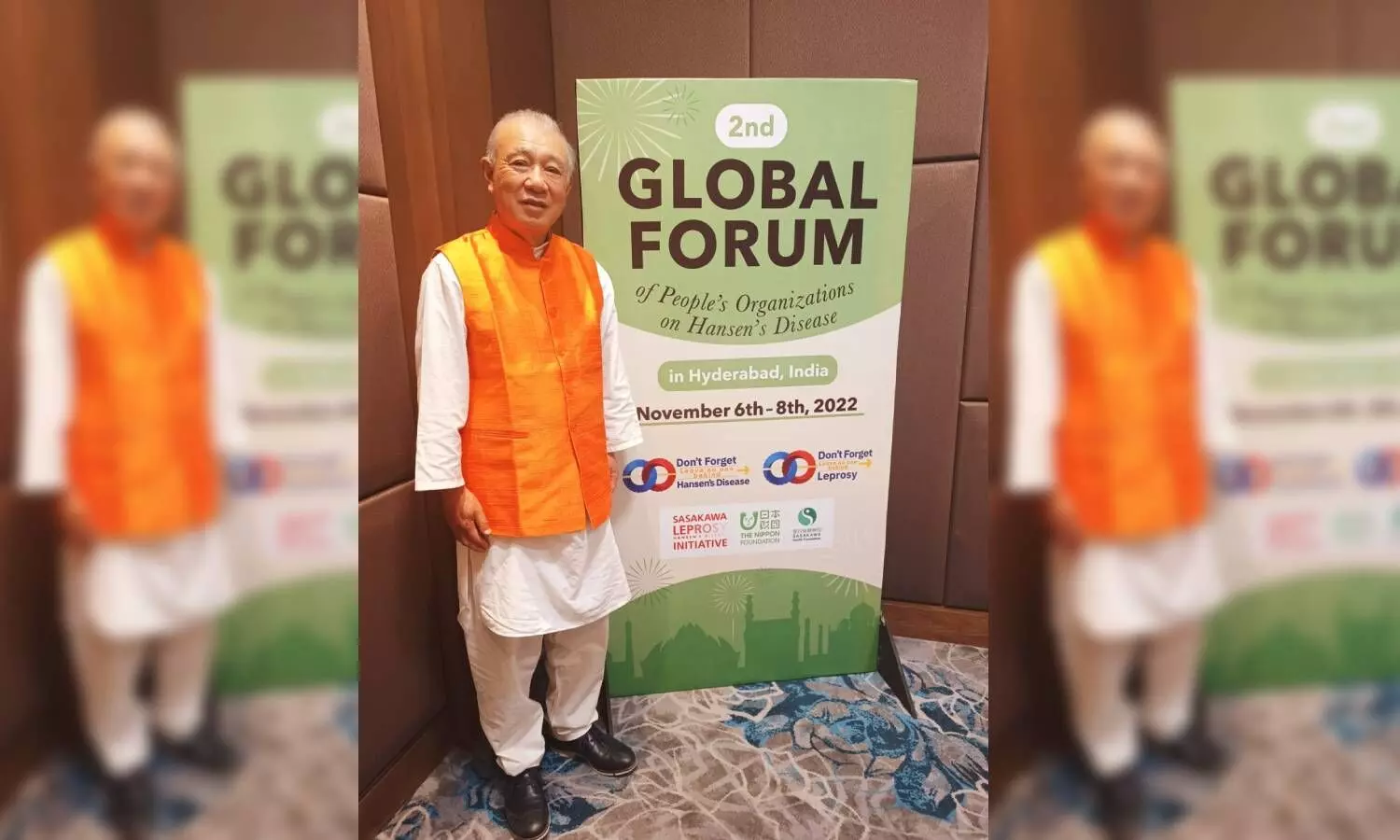Ghettoization of people with leprosy still prevalent: WHO goodwill ambassador Yohei Sasakawa
On Monday, WHO goodwill ambassador for leprosy elimination, Yohei Sasakawa, interacted with the press here to share his thoughts on the way forward to eradicate leprosy.
By Newsmeter Network
Hyderabad: In 2019, India reported more than 1,00,000 new leprosy cases which is more than half the global total. On Monday, WHO goodwill ambassador for leprosy elimination, Yohei Sasakawa, interacted with the press here to share his thoughts on the way forward to eradicate leprosy. He commended India's commitment to making the country leprosy free by 2030.
Global forum on leprosy
Hansen's disease, or leprosy, is an infectious skin and peripheral nerve disease. Multidrug therapy cures leprosy, but untreated, it might cause severe disability. An estimated 3-4 million people might be living with some form of disability due to leprosy.
The Covid-19 pandemic hampered the detection of cases, patients could not access healthcare services due to the lockdowns, and almost all public health efforts were directed toward combating the pandemic, leading to late detection and increased risk of disabilities.
To bring awareness about the disease and break the stigma The Sasakawa Leprosy Initiative is holding the second Global Forum of People's Organisations on Hansen's Disease (Leprosy) in Hyderabad as part of its "Don't Forget Leprosy" campaign ahead of the International Leprosy Congress.
The focus of the global forum will be on strengthening and optimising the responsibilities and capacities of people's organisations to promote the dignity of those affected by Hansen's disease.
'Still 800 leprosy colonies in India'
On Monday, WHO Goodwill ambassador for leprosy elimination, Yohei Sasakawa, interacted with the press to share his thoughts on the way forward to eradicate leprosy.
Speaking with NewsMeter about the ways the Indian government is supporting people affected by leprosy, he said, "Though the case incidence rate is high in India, PM Modi is showing commitment. He has taken the challenge to make the country leprosy free by 2030, which is a huge thing."
He said the ASHA system in India is highly effective. "They work on the ground and monitor households at risk of leprosy. This helps in early detection and reduced chance of disability," he added.
When asked what we can do as a community to build support systems, he said the important thing is to accommodate the social participation of the people affected by leprosy. "In 2010, the UN adopted the resolution to end discrimination and stigmatisation of leprosy patients and their families," he said.
He further added, "India has voted in favor of this. However, there is still a lot to do. The ghettoization of people suffering from leprosy is still prevalent. According to a survey done by the organisation of persons affected by leprosy, there are still 800 colonies in the country."
Mr. Sasakawa added, "We have brought this information to the attention of the authorities, and they are working to rehabilitate the people from these colonies. We are also working with the government to provide affected persons with a pension or additional special allowance."
Building support systems
Speaking about helping people with leprosy get back to everyday life, Mr. Sasakawa said, "Even after treatment, they suffer from disabilities, so we request the governments to consider them under the disability schemes and acts so that they get better work opportunities."
About the impact of Covid on the screening and detection of leprosy cases, he said, "Though it is true that due to Covid there has been a lag, services are slowly restarting."
When asked how we can battle the stigma associated with the disease, the WHO goodwill ambassador explained, "I always give the example of a motorcycle. The front wheel is the medical part—detection and treatment—while the back wheel is the stigma. They are still associated with the disease after complete recovery. So, I believe the back wheel is where the work is needed, the human rights aspect."
He added, "Even in the old testament, leprosy is referred to as the curse of god, so I think this disease is the origin of human rights violations."
Changing attitudes
Speaking of the shift in attitudes, he recalled how, a few years ago, persons affected with leprosy were denied accommodation for a conference. But today, they were able to host the conference at HICC, Hyderabad, which demonstrates that the stigma is progressively breaking, he said.
He further said, "Though there is no magic wand, we hope to rehabilitate as many people affected by leprosy as possible in the workforce and everyday life."